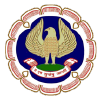Application Start Date
03-05-2022
Application End Date
15-07-2022
Main Exam Date
22-07-2022
Overview
Andhra Pradesh Engineering Common Entrance Test, a state-level test and also known as AP ECET, is conducted for Diploma holders of Pharmacy, B.Sc Graduates and Engineering & Technology for admission into lateral entry programs in B.E, B.Tech, and B.Pharmacy programmes. Andhra Pradesh Engineering Common Entrance Test is a state-level entrance exam administered by JNT University for candidates desirous to study lateral entry programs. The entrance test is conducted annually.
Conducting Body: Jawaharlal Nehru Technology University Anantapur on behalf of Andhra Pradesh State Council of Higher Education (APSCHE) conducts Andhra Pradesh Engineering Common Entrance Test also known as AP ECET which is a state-level entrance exam for candidates desirous to study Lateral Entry programs B.E, B.Tech, and B.Pharmacy. The entrance test is conducted in Online mode. The following mentioned detail is regarding the B.Tech program.
Important Dates:
|
Events |
Dates |
Mode |
Link |
|
Registration Date |
06/03/2020 |
Online |
|
|
Application Date |
03/06/2022 to 15/07/2022 |
||
|
Admit Card |
Will be updated soon. |
||
|
Exam Date |
22/07/2022 |
||
|
Result Date |
Will be updated soon. |
Selection Procedure: There is only one stage in AP ECET for candidates to qualify for admission:
-
Written Test
Exam Pattern: The examination is conducted in Online mode and contains MCQ type questions. The question paper is set in the English Language. The paper is divided into 4 sections namely Physics, Mathematics, Chemistry, and Engineering Branch. The total no. of questions are 200. The total time duration of the exam is 03 hours. The exam pattern in detail is as follows:
|
Serial No. |
Subjects |
No. of Questions |
Marks |
Maximum Marks |
|
1. |
Mathematics |
50 |
1 mark |
50 |
|
2. |
Physics |
25 |
1 mark |
25 |
|
3. |
Chemistry |
25 |
1 mark |
25 |
|
4. |
Engineering Branch |
100 |
1 mark |
100 |
|
Total |
200 |
200 marks |
- Note:- There is no provision of Negative Marking.
Eligibility:-
- Age Limit:-
-
No age limit. Candidates are advised to refer to the website regarding the same.
- Educational Qualification:
-
Candidates must be diploma holders in Engineering/Technology/Pharmacy from the State Board of Technical Education of the state of Andhra Pradesh or equivalent from a recognized AICTE institution under the state government. Or
-
Candidates must have passed the 3-year degree from a recognized University in the state with Mathematics as one of the subjects.
-
Candidates pursuing diploma courses are also eligible.
-
The minimum required marks are 45% (40% for Reserved category) in Qualifying exams
- Domicile:
-
Only candidates having Domicile certificate of Andhra Pradesh are eligible to apply. The requirements of Non - Local/Local status are laid down by State govt.
- Nationality:
-
Only Indian citizens are eligible to apply.
Syllabus:
- Mathematics:
-
Analytical Geometry
-
Differentiation and its Applications
-
Integration and Its Applications
-
Differential Equations.
-
Matrices
-
Partial Fractions
-
Trigonometry
-
Complex Numbers
- Chemistry:
-
Atomic Structure
-
Chemical Bonding
-
Solutions
-
Corrosion
-
Polymers
-
Fuels
-
Environmental chemistry
-
Acids and Bases
-
Electrochemistry
-
Water Technology
- Physics:
-
Units and dimensions
-
Elements of vectors
-
Kinematics and Friction
-
Work, Power, and Energy
-
Simple harmonic motion and acoustics
-
Heat and Thermodynamics
-
Modern Physics
- Biotechnology:
-
Bio-Reactor Engineering
-
Molecular Biology-Genetic Engineering
-
Plant Bio-Technology
-
Animal Bio-Technology
-
Bio-Informatics
-
Enzyme Engineering
-
Basic Industrial Biotechnology
-
Bio-Physics
-
Genetics and Cell Biology
-
Microbiology
- For Ceramic Technology:
-
Geology and Mineralogy of Ceramic Raw Materials
-
White Ware and Heavy Clay Ware
-
Refractories
-
Glass Technology
-
Cement Technology
-
Advanced Ceramics
-
Fuels
-
Furnaces & Pyrometry
-
Enamels & Glazes
- For Chemical Engineering:
-
Material technology
-
Chemical process principles
-
Organic Chemical Technology
-
Inorganic Chemical Technology
-
Fluid mechanics
-
Heat transfer
-
Mechanical unit operations
-
Thermodynamics and Reaction Engineering
-
Mass Transfer
-
Instrumentation & process control
-
Environmental Studies and Pollution Control Engineering
-
Energy Technology & Plant Operation
- For Civil Engineering:
-
Strength of Materials
-
Theory of Structures
-
Reinforced Concrete Structures
-
Surveying
-
Hydraulics and Irrigation Engineering
- For Computer Science & Engineering:
-
Digital Electronics
-
Microprocessors
-
Computer Organization
-
C and Data Structures
-
Computer Networks
-
Operating Systems
-
RDBMS
-
Object-Oriented Programming through C++, Java Programming and Internet Programming.
- For Electronics and Communication Engineering:
-
Electronic Devices and Circuits
-
Circuit Theory
-
Electronic Measuring Instruments
-
Industrial Electronics
-
Communication Systems
-
Advanced Communication Systems
-
Digital Electronics
-
Microcontrollers and Microprocessors
-
Consumer Electronics and Electronic Product Design
-
Data Communications and Computer Networks
-
Embedded Systems and Digital Circuit Design through Verilog HDL, Programming in C and Computer Hardware.
- For Electrical & Electronics Engineering:
-
Basic Electrical Engineering
-
D.C. Machines
-
Batteries & Measuring instruments
-
A.C. Circuits and Transformers
-
A.C. Machines
-
Power System generation & Protection
-
Transmission and Distribution
-
Electric Traction
-
Electrical Estimation
-
Basic Electronics and Digital Electronics and Power Electronics and Micro Controller.
- For Electronics and Instrumentation Engineering:
-
Electrical Engineering
-
Industrial electronics and control engineering
-
Electronics
-
Digital Electronics
-
Electronic Measuring instruments
-
Process Instrumentation
-
Process Control
-
Communications and Linear IC Applications
-
Analytical and Biomedical Instrumentation
-
Microcontroller & PLCs
- For Mining Engineering:
-
Elements of Mining
-
Mining Geology
-
Methods of Working-Coal
-
Methods of Working of Metal
-
Opencast Mining
-
Mine Environmental Engineering-1 & 2
-
Mine Surveying
-
Mining Machinery-1 & 2
-
Mine Management
-
Legislation and Safety
-
Mineral Processing
-
Quality Control.
- For Mechanical Engineering:
-
Workshop Technology
-
Welding
-
Forging
-
Foundry and Conventions in Drawing
-
Engineering Materials and Solid Mechanics
-
Design of Machine Elements
-
Thermodynamics
-
Hydraulic Machines and Pneumatics
-
Steam Boilers
-
Nozzles and Turbines
-
Refrigeration
-
Industrial Management and Engineering
-
Automobile Engineering.
- For Metallurgical Engineering:
-
Ferrous Extractive Metallurgy
-
Non-Ferrous Extractive Metallurgy
-
Material Testing
-
Mechanical Metallurgy
-
Foundry Technology
-
Welding Technology.
-
Elementary Principles of Metallurgy
-
Fuels
-
Refractories and Pyrometry
-
Metallurgical Thermodynamics
-
Physical Metallurgy
-
Heat Treatment Technology.
FAQs:
Ques 1. From where can a candidate get the information regarding the AP ECET exam?
Ans. Candidates can get the information from the official website of the Andhra Pradesh Engineering Common Entrance Test.
Ques 2. How can a candidate apply for the AP ECET exam?
Ans. Candidates can apply in Online mode for the entrance test after completing the registration process.
Ques 3. Does a candidate have to mail the application form?
Ans. No, there is no such provision. Candidate must take a print out of the filled application form for future reference.
Ques 4. Mention the modes of fee payment?
Ans. Application payment can be made in online mode through Net Banking, Debit Card, Credit Card or AP Online by Cash.
Ques 5. Is there a provision of fee exemption?
Ans. No. There is no such provision.
Ques 6. What is the selection procedure for the AP ECET exam?
Ans. For entrance test the selection is done through the following steps:
-
Written Test
-
Counselling
Ques 7. Is there any Interview?
Ans. No, there is no Interview for AP ECET exam.
Ques 8. Is the exam conducted online or offline?
Ans. The exam is conducted in Online mode.
Ques 9. Is there any sectional timing in the exam?
Ans. No. There is no such provision.
Ques 10. Is there any Negative Marking in the exam?
Ans. No. There is no such provision.
Ques 11. On what basis the merit list is prepared?
Ans. The merit list is prepared on the basis of Written/Objective marks.
Ques 12. Is there any change that can be made in the examination center once the form is submitted?
Ans. No changes can be made once the form is submitted.
Ques 13. What are the precautions to be taken by a candidate while filling up the Application Form?
Ans. Before filling up the Application Form please read the instructions carefully.
Ques 14. For how long the scores are valid after the Entrance Test?
Ans. The scores are valid for 1 year period.
Related Exam
For Timely Preparation With Updated Information
Application Start Date
03-05-2022
Application End Date
15-07-2022
Main Exam Date
22-07-2022
eStudent Times
Our aim is to bridge knowledge and education through the latest news, innovation in education, updates, and notifications around the globe guiding the students towards erudition in their field of interest.

AP ECET 2021: Answer Key Released
Jawaharlal Nehru Technological University, Anantapur has released the answer key for the AP ECET 2021...

AP ECET 2021: Rank Card Released
Jawaharlal Nehru Technology University has released the rank card of the AP ECET 2021...

AP ECET 2021: Online Counselling Registration Starts
The APSCHE has commenced the registration for the web-based counselling for AP ECET 2021...

AP ECET 2022: Answer Key Released
Andhra Pradesh State Council of Higher Education has released the answer keys for AP ECET...

AP ECET 2023: Registration Starts
The Andhra Pradesh State Council of Higher Education has commenced the registration process for AP ECET 2023...

.jpg)
 Main Exam Date
Main Exam Date  Notification(s)
Notification(s) 
 Overview
Overview Eligbility
Eligbility Selection Procedure
Selection Procedure Application
Application Syllabus
Syllabus Pattern
Pattern Admit Card
Admit Card Sample Paper
Sample Paper More
More Cut offs and Result
Cut offs and Result Fee
Fee Faq
Faq Blog
Blog

Post Comments